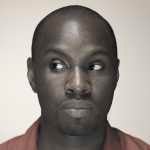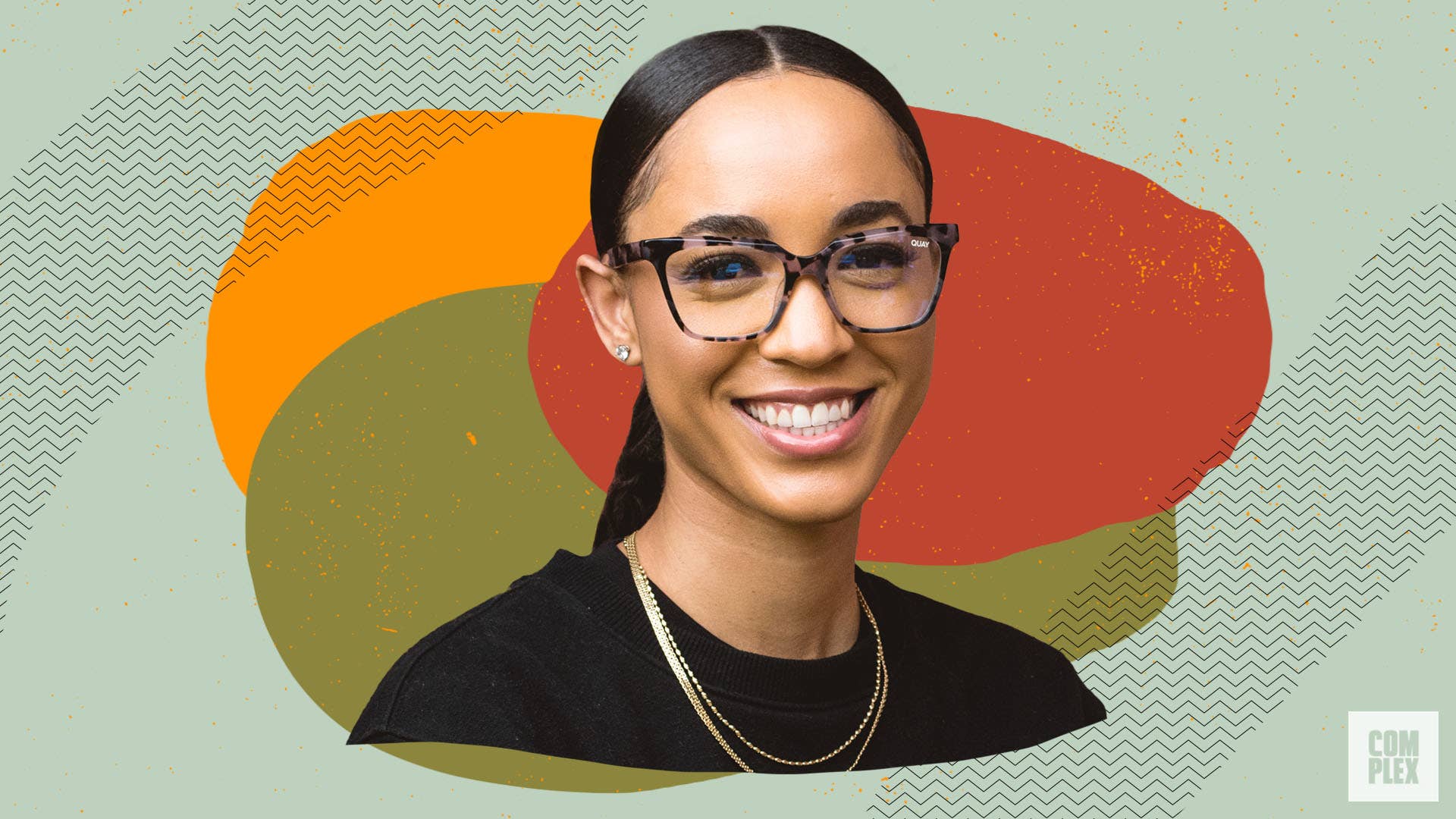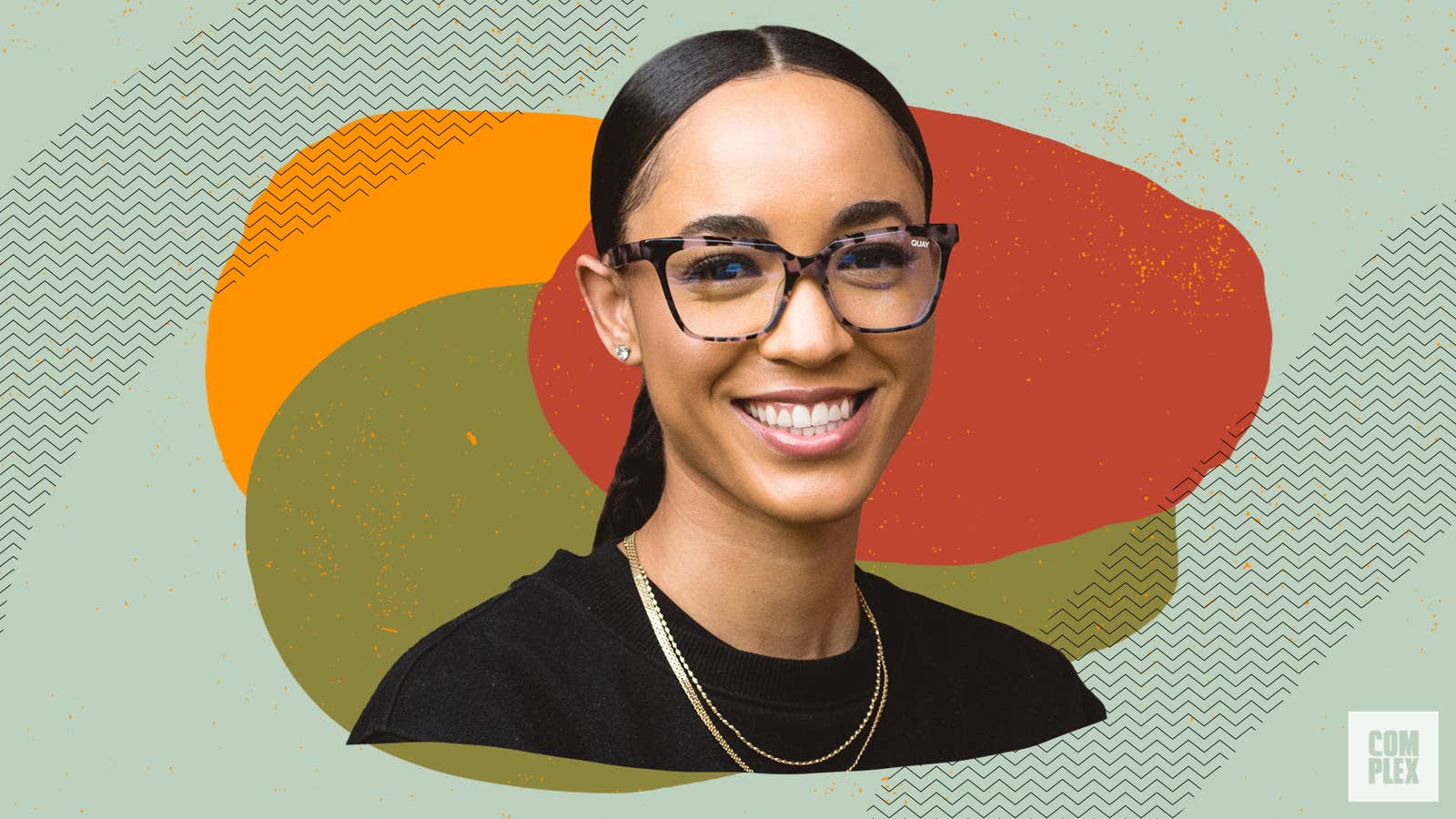
The richness of Black culture is derived from its people. No matter what corner of the world we call home, there’s a shared energy that connects us. It can be as subtle as a head nod exchanged between strangers passing in the street or using a raised fist to universally communicate solidarity.
Our sense of community is founded on an innate understanding of how the world perceives us. Whether we identify as African-American, Caribbean, Afro-Latino, or other doesn’t matter because at the end of the day we are all Black. With that comes a sense of pride and power that we wear as a badge of honor. To be Black is to be at the forefront of culture, the center of cool, and wholly unlimited in our possibilities.
This year, as part of Black History Month, we celebrate this diversity with 28 Things About Me, a four-part editorial series where members of our own community share their personal stories around Blackness. Here, Complex’s Senior Marketing Manager Ayanna Carter reveals how her Black girl magic is steeped in authenticity.
Click here for Part 1 | Part 2 | Part 4.
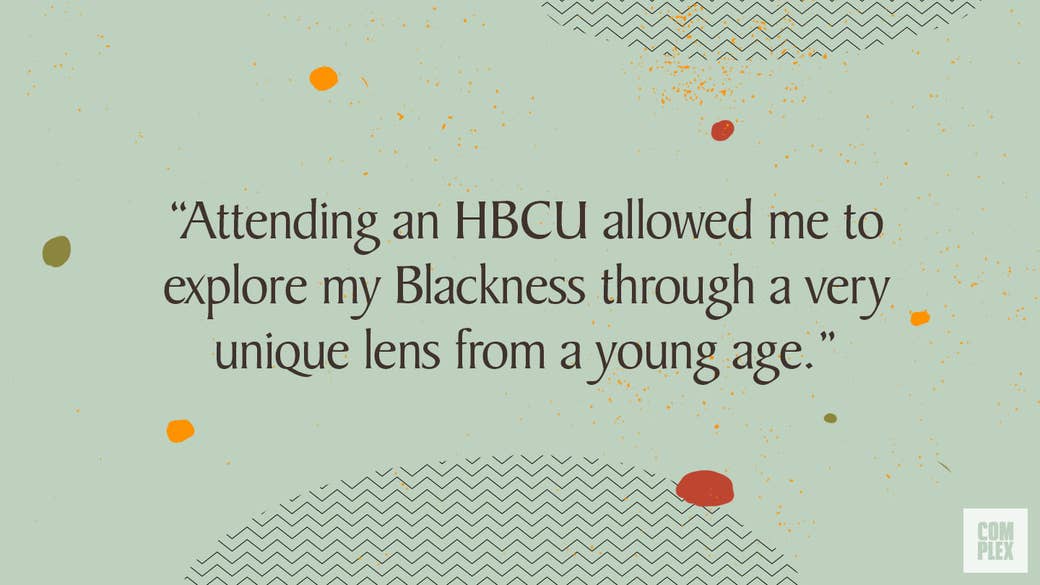
1. Why do you feel celebrating Black History Month is important?
There is so much more to Black History Month than tribal patterns, Martin Luther King Jr, and Rosa Parks. To me, Black History Month is important because it’s a celebration of our successes, culture, past, and future. Black History Month is an opportunity for us to own our narrative by showcasing the richness, diversity, and uniqueness of our culture.
2. What piece of Black history are you most inspired to have experienced in your lifetime?
As a Howard alumna Kamala Harris’ election into office was extremely inspiring to me because of the significance. Seeing a Black woman from my alma mater being elected into such a prestigious position makes me optimistic for not only my future, but my children’s future and the future of the Black community.
3. Which prominent Black historical figure speaks to you most and why?
I’ve always felt most connected to the work of Dorothy Heights. Her dedication and contributions to both the civil rights and women’s rights movements have paved the way not only for myself but for Black women everywhere.
4. What is the best thing about being Black?
The best thing about being Black is our community runs so deep. You can go anywhere in the world and form a bond to feel that sense of community. The Black community is so powerful in all aspects.
5. What does Black culture mean to you and how do you represent it every day?
So often Black people are put into a box where they feel like they are forced to act or dress a certain way to live up to “societal standards.” Code switching is real and something I think all of us have experienced at various points throughout our lives. I represent Black culture everyday by showing up as my authentic self in all spaces, even when it’s uncomfortable. With a career in marketing in the entertainment industry, I also feel a personal connection to ensure that my work honors and portrays the Black community and culture in a positive light.
6. What comes to mind when you hear the phrase “Black and unlimited?”
When first hearing the phrase, I immediately think our potential is unlimited. After giving it more thought, I realize, yes, our potential is just as unlimited as anyone else’s but by default, the color of our skin instills societal limitations and oppression on that potential.
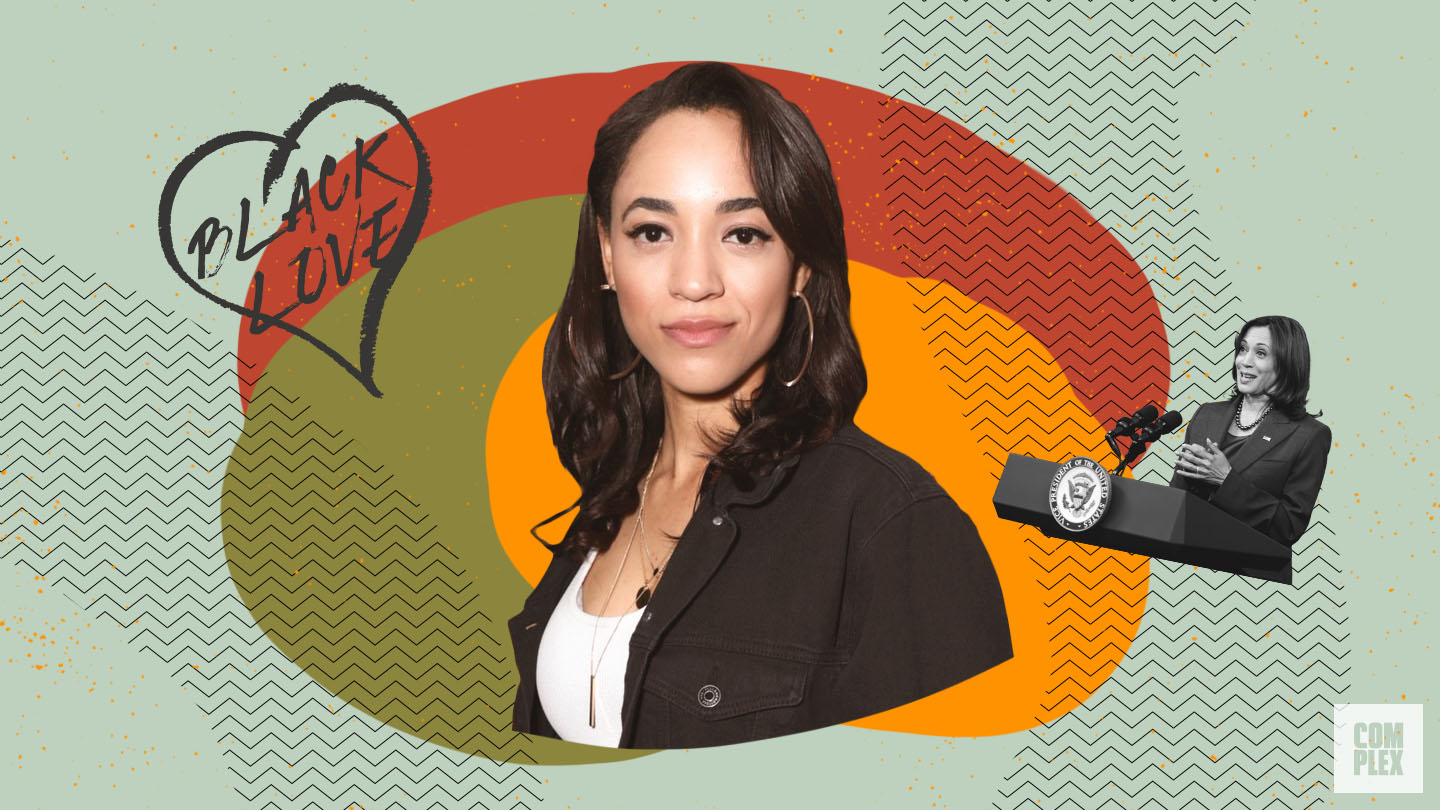
7. Where were you raised and how did your hometown influence the person you are today?
I grew up in Columbia, Maryland, which is a predominantly white area. Throughout my primary school education I was often the only Black child in the majority of my classes. I think growing up in this environment then attending an HBCU allowed me to explore my Blackness through a very unique lens from a young age. My childhood experiences definitely paved the way for me to be a lot more culturally curious than most of my peers coming from different backgrounds and upbringings.
8. What foods most remind you of home? What special memories do you have about this dish?
Ackee and saltfish (the national dish of Jamaica) with fry dumplings will always remind me of home. Growing up I would get so excited to wake up to the smell of my mom cooking ackee and saltfish for breakfast. That will always be one of my favorite comfort foods.
9. What are some of your fondest family traditions?
One of my favorite family traditions is every year during the holiday season my mom makes a traditional Caribbean dessert known as black cake. It’s a rum-soaked fruit cake that is enjoyed on special occasions like Christmas, weddings, or milestone birthdays. My mom typically makes about two pounds of black cake each year, and our entire family looks forward to receiving their piece.
10. What’s one lesson about Blackness that your family or an elder passed on to you that you still carry with you today?
This question was challenging for me, but after talking with one of my brilliant aunts in Barbados, I came to realize that my experience growing up in a Caribbean household was a lot different than my peers’ experiences growing up in Black American households. In most Caribbean countries there isn’t overt racism because they live in a truly Black society. Though many islands have other issues like colorism and classism, from a young age you grow up in an environment seeing people of color holding various positions of power because it’s the societal norm. An important lesson passed on to me from my family has always been to never forget your roots and where you came from.
11. What does your family name represent for you? In what ways do you look to honor the legacy of your ancestors?
My family name originates from slave owners but to me it represents strength, persistence, and success. I look to honor the legacy of my ancestors by continuously using their past as a motivation to propel my future.
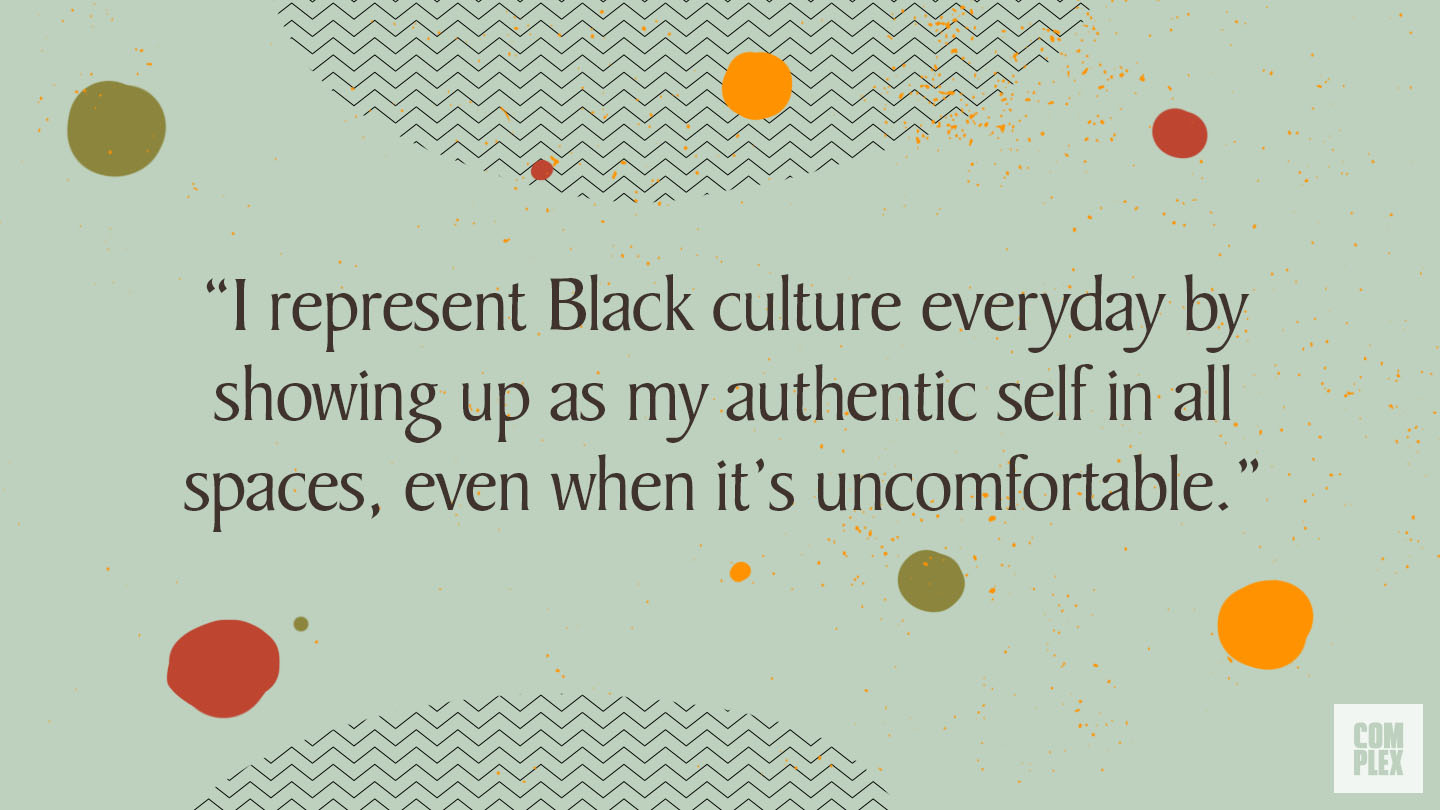
12. What does Black excellence mean to you? How do you personify it in your day-to-day life?
To me, Black excellence is used to describe someone or something that is achieving success to improve or make the Black community proud. I believe that it is essential to include the community in conversations about Black excellence because true success is measured by the people you impact and inspire.
13. How is your personal style a reflection of your Blackness?
In my personal style, I try to incorporate a majority of Black-owned products and designers. I think buying Black and being vocal about it is one of the best ways to continue to push our community forward.
14. If you could travel to any Black nation in the world, where would you go and why?
I’ve always wanted to visit Tanzania because of the rich cultural history and breathtaking scenery. One of my biggest hobbies is spending time outdoors to explore so I would love to hike Mount Kilimanjaro.
15. What is the Blackest thing you own and what does it mean to you?
My Protect Black Women bag by Cise is one of my all-time favorite pieces. The message and mission behind the brand serves as an important reminder in today’s racially charged times. Cise was also founded by a fellow Howard alumni, Blake Van Putten.
16. What is an interest you have that typically isn’t considered a “Black thing” but is 100% part of who you are?
I started playing soccer at the age of 7 to follow in my father’s and older brother’s footsteps. Soccer is one of the most widely played sports in the Caribbean by both genders, but 20 years ago in the U.S. it was not popular among the Black community. I was often one of two or three Black girls on all of my youth teams. I can recall multiple times when I was the only person of color on the field. The lack of diversity in the sport was ultimately why I chose to accept an athletic scholarship and continue my soccer career at Howard University. At the time there were very few HBCUs that offered a Division I women’s soccer program.
17. What’s your fondest memory attending an HBCU?
One of my all-time favorite memories on campus was in 2012 when President Obama was re-elected into office. Howard hosted a campus-wide viewing party in Blackburn, our student center. Once the votes came in and Obama officially won, Blackburn erupted with excitement. Immediately everyone flooded the central outdoor area of our campus known as “the yard” with music and dancing. After celebrating on the yard, it felt like the entire campus then marched about two miles to the White House. It was such a beautiful moment seeing people from all backgrounds in the streets embracing one another in happiness. I’ll never forget the energy that I felt from the city that historical night. This moment was so special to me because it was my first time voting in a Presidential election, so I was really able to see and feel the impact of my vote.
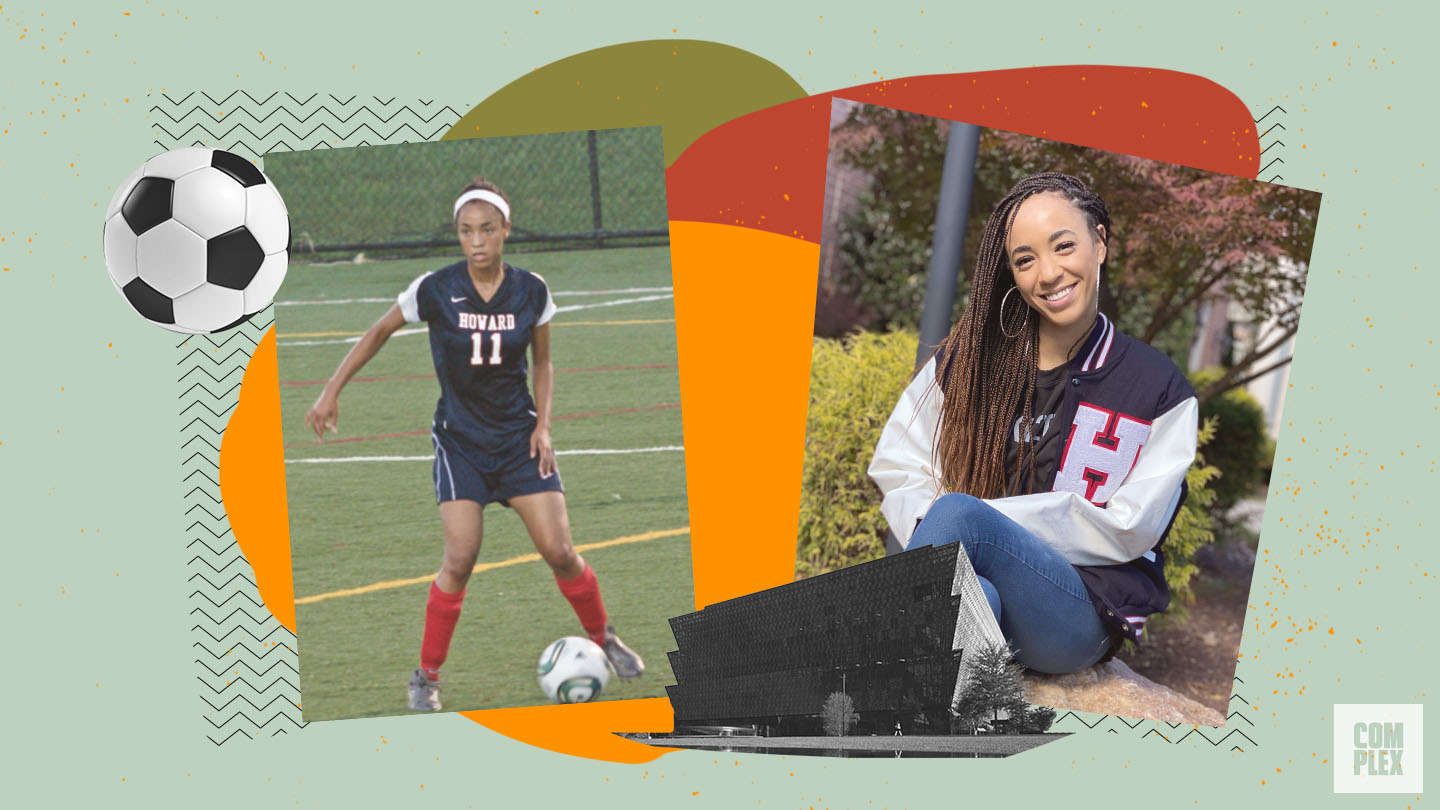
18. When someone says “Black is beautiful,” what is the first thing that comes to mind for you?
The diversity and resilience of our people. Our various backgrounds, experiences and different cultures are a small part of what makes Black so beautiful in my eyes.
19. Who would you say is your best example of Black love? How have they influenced you?
My parents are by far the best example of Black love in my life. They met on a blind date over 30 years ago, so it was a REAL blind date. Since the day they met they have been inseparable. Over the years I’ve witnessed the many seasons of their relationship but each and every day they still show up and choose to love and honor one another.
20. What TV show from your childhood defined the Black experience for you at the time and how did that impact your view of the world?
Insecure is not from my childhood, but it has definitely showcased and defined my experience as a young Black adult. It has normalized so many issues that I’ve struggled with talking about over the years because I thought these challenges were exclusive to me when in reality, there are other Black women struggling with similar issues.
21. If you were making a playlist that would be the soundtrack of your life, what song would be your intro and why?
“I Think I Love Her” by Gucci Mane would definitely be my intro. Any of my close friends or family know this is my go-to hype song so it’s only right to introduce me.
22. What song would be your outro and why?
If you asked my close family and friends to describe me they would immediately say that I am the type of person that once I set my mind to achieve something, I will work towards achieving that goal regardless of the challenges or obstacles I may endure. For that reason my outro song would be the reggae tune “Lift Up Your Head” by Everton Blender because of the powerful lyrics.
23. Who is your favorite Black artist? What is it about his/her art that speaks to you?
One of my favorite artists is Rihanna—even though she still hasn’t given us a new album. I think Rihanna’s ability to continuously expand her business beyond music to create such a powerful legacy while always giving back is so admirable.
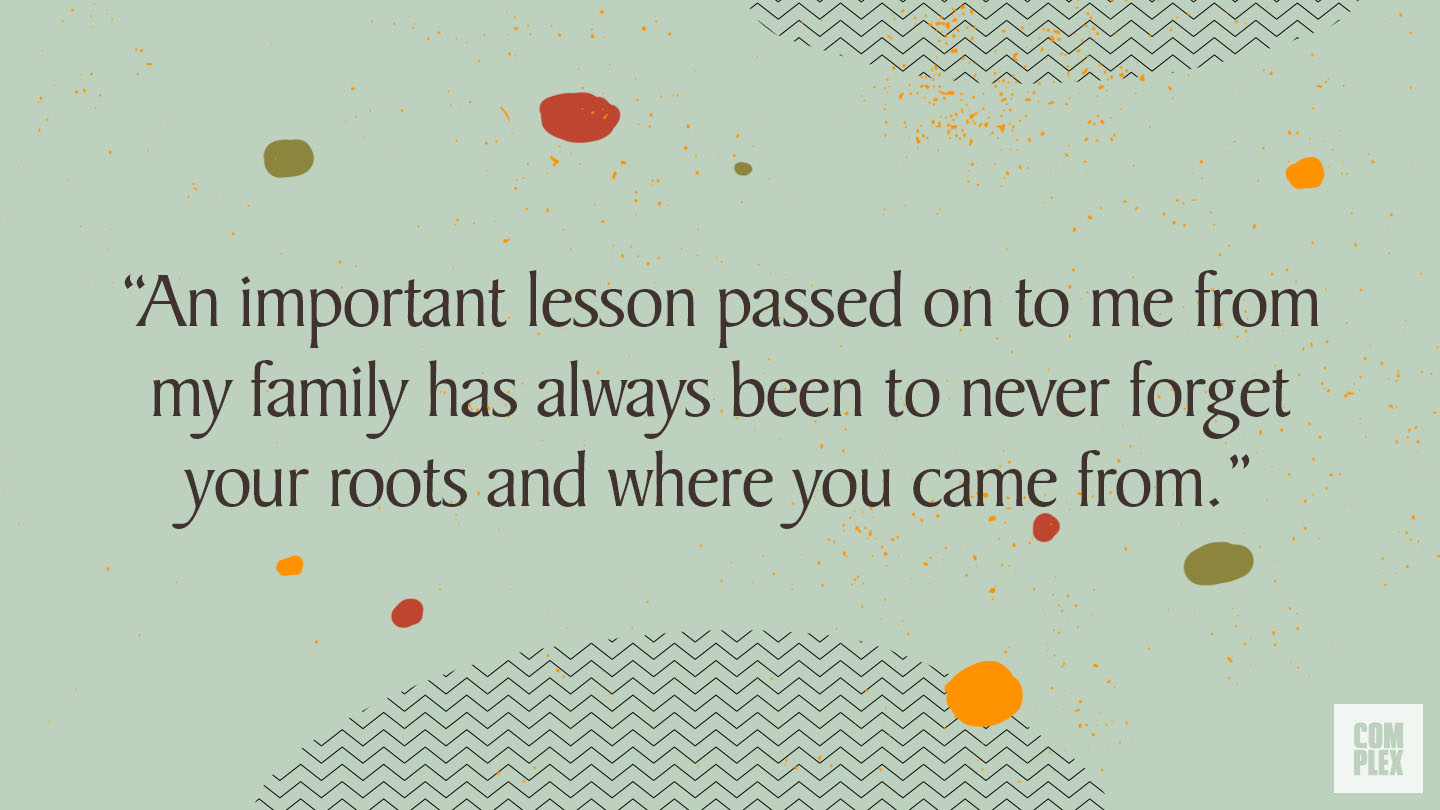
24. Who is your favorite Black actor/actress and what about their on-screen work appeals most to you?
I admire Lupita Nyong’o’s work because she shows up as her authentic self in all rooms. Throughout her career she has continuously found ways to keep herself relevant by pivoting and playing diverse roles.
25. What’s your favorite movie with a predominantly Black cast and why is it so special to you?
Hidden Figures. The story behind the film is so important to Black history and often overlooked. At the time when this movie was released, I was working for a movie and PR agency in DC. I had the opportunity to plan and host a celebrity red carpet screening for the cast at the newly opened National Museum of African American History and Culture. This film holds such a special place in my heart because it was a monumental moment in my career for a historic film.
26. What piece of Black literature has had the biggest influence on you and why?
The Medical Apartheid: The Dark History of Medical Experimentation on Black Americans from Colonial Times to the Present by Harriet Washington is one of the most influential books that I’ve read. During my time at Howard, we used this book as a reference for my medical sociology course. It left such a lasting impression on me because I think the author did a phenomenal job detailing the medical mistreatment of African-Americans from slavery to present. The book references some of the more commonly known historical mistreatment like the Tuskegee experiment but it also takes a deeper dive into many areas of our Black history that have been swept under the rug for years. This book really piqued my interest by encouraging me to start doing my own personal research on medications and alternate ways to live a more natural lifestyle.
27. What is your favorite Black invention and why?
A very new invention but my favorite by far is Air Protein, which was created by Dr. Lisa Dyson. Air Protein is a new meat alternative made from elements of the air. So many Black people live in food deserts and areas where healthy, affordable food options are just not accessible or extremely expensive. I strongly believe once Air Protein is available and accessible to all, it has the potential to really make a positive impact on our communities everywhere.
28. What do you want your legacy to be?
I want to be remembered for my thoughtfulness, kindness, and love that I share with my community. I want to continue to provide opportunities for young Black women and men to enter rooms feeling empowered.
